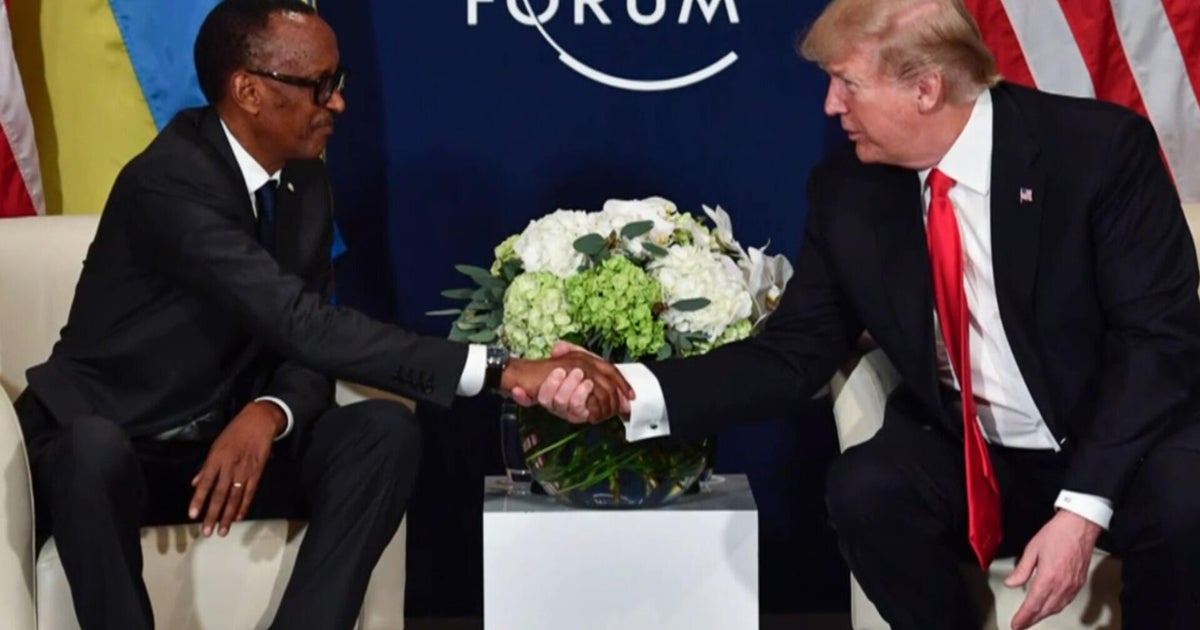The Government of Rwanda and representatives from the Trump administration are currently engaged in intricate negotiations concerning a prospective agreement that would position Rwanda as a new destination for certain deportees from the United States. This proposed arrangement could have significant implications not only for the two nations directly involved but also for a broader spectrum of individuals, including Africans and other non-Rwandan nationals who might be subject to deportation from the U.S.
This development, as learned by CBS News, heralds a potentially transformative phase in U.S.-Africa relations, particularly in how immigration and deportation matters are handled between the U.S. and African nations. The discussions reflect a strategic shift by the U.S. in managing its deportation strategies and highlight Rwanda’s openness to international agreements that might aid in its ongoing economic and diplomatic endeavors.
Details emerging from these discussions illuminate the complex considerations both parties are negotiating. The exact terms of the agreement, the categories of individuals that would be affected, and the legal and ethical frameworks governing the deportations are central to these talks. The potential agreement would likely include provisions for the processing and resettlement of deportees in ways that conform to international law and respect human rights, amidst broader concerns about the treatment and welfare of those deported.
Rwanda, known for its dramatic turnaround since the 1994 genocide, has become an advocate of progressive policies and international cooperation. The country’s leadership under President Paul Kagame has been marked by significant economic growth, stability, and a decrease in corruption, making Rwanda an attractive partner in international agreements. Accepting deportees could be seen as part of Rwanda’s broader strategy to increase its international standing and secure more international partnerships and aid.
For the U.S., under the Trump administration, which has been characterized by a stringent stance on immigration, this agreement fits into a broader agenda to enhance border security and regulate immigration flows. The administration’s efforts have been marked by several controversial policies and proposals aimed at reducing the number of undocumented or irregular immigrants in the U.S. Working with countries like Rwanda could provide a means to ensure that those being deported are relocated to a nation capable of integrating them effectively and humanely.
However, such an agreement raises numerous questions and concerns. Chief among these is the human rights aspect, considering the criticisms faced by Rwanda regarding political repression. Ethical considerations about deporting non-Rwandans to a third country, potentially against their will, also pose significant diplomatic and legal challenges. The implications for those deported in terms of integration, economic opportunities, social acceptance, and legal protection are profound and require careful negotiation to align with international human rights standards.
From a logistical and operational perspective, the implementation of such an agreement would require robust frameworks to ensure smooth processing, adequate support systems for reintegration, and continuous monitoring to safeguard the rights and well-being of deportees. Additionally, there would likely be a financial implication, with costs associated with transportation, integration programs, and potentially, aid to Rwanda for facilitating this agreement.
The reactions to these ongoing discussions are varied. On one hand, some policy analysts see this as a pragmatic approach to deal with issues of deportation and irregular migration more broadly. It could be viewed as a way for the U.S. to manage its immigration issues while supporting Rwanda’s development through financial aid and other resources. On the other hand, human rights groups are likely to watch these developments closely, concerned about the welfare of those deported and the legal precedents such an agreement might set.
This proposed deportation policy reflects a unique approach to international collaboration in handling complex issues like migration and human rights. As these negotiations progress, they will likely attract attention from a wide range of stakeholders including international law experts, human rights advocates, and the global diplomatic community.
While the details continue to be discussed and finalized, the global community remains keenly observant of how such policies will shape future relations between the U.S. and African countries, and how effectively they balance strategic interests with ethical considerations. The outcome of these talks could very well set a new course in geopolitical dynamics and human rights adherence in cross-continental agreements of this nature.









